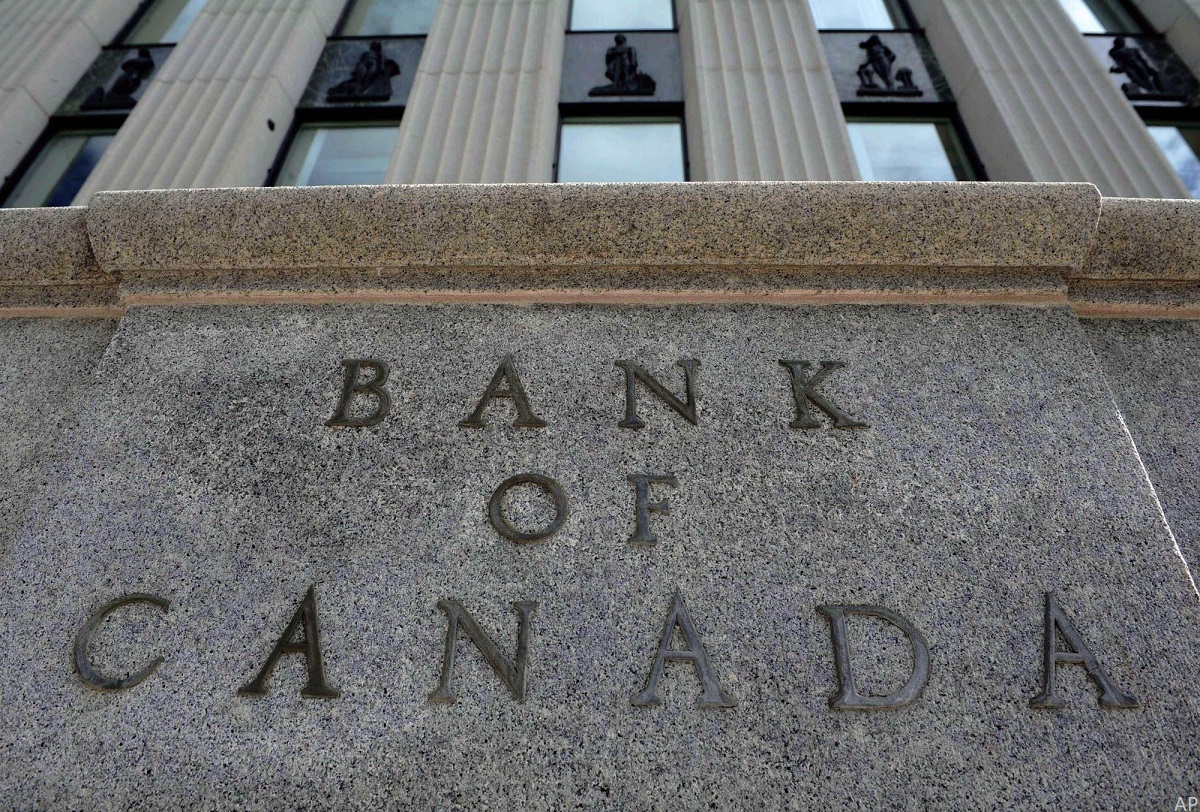
Today, the Bank of Canada announced that it is maintaining its target for the overnight rate of 5%, with the Bank Rate at 5.25% and the deposit rate at 5%. The Bank is continuing with its policy of quantitative tightening.
“With recent evidence that excess demand in the economy is easing, and given the lagged effects of monetary policy, Governing Council decided to hold the policy interest rate at 5% and continue to normalize the Bank’s balance sheet,” the Bank said today while cautioning that it remains concerned about the persistence of underlying inflationary pressures and is prepared to increase the policy interest rate further if needed.
The Bank’s Monetary Report released in July said that there were signs that in Canada and around the world, inflation was coming down. The Bank projects that inflation will remain around 3% next year, returning to 2% by 2025.
“Inflation in advanced economies has continued to come down, but with measures of core inflation still elevated, major central banks remain focused on restoring price stability,” the Bank said today, “Global growth slowed in the second quarter of 2023, largely reflecting a significant deceleration in China. With ongoing weakness in the property sector undermining confidence, growth prospects in China have diminished. In the United States, growth was stronger than expected, led by robust consumer spending. In Europe, strength in the service sector supported growth, offsetting an ongoing contraction in manufacturing. Global bond yields have risen, reflecting higher real interest rates, and international oil prices are higher than was assumed in the July Monetary Policy Report (MPR).”
Canadian Economic Growth Slowed Sharply
In explaining its rationale for the decision to hold rates, the Bank said: “The Canadian economy has entered a period of weaker growth, which is needed to relieve price pressures. Economic growth slowed sharply in the second quarter of 2023, with output contracting by 0.2% at an annualized rate. This reflected a marked weakening in consumption growth and a decline in housing activity, as well as the impact of wildfires in many regions of the country. Household credit growth slowed as the impact of higher rates restrained spending among a wider range of borrowers. Final domestic demand grew by 1% in the second quarter, supported by government spending and a boost to business investment. The tightness in the labour market has continued to ease gradually. However, wage growth has remained around 4% to 5%.”
What Does the Rate Decision Mean for Canadian Investors?
"Though interest rates remain flat, we urge investors to continue to keep a laser-sharp focus on their long-term investment goals, and not short-term market volatility brought forth by interest rate hikes, commodity prices, or general news flow,” says Morningstar Canada’s director of investment research, Ian Tam.
Inflation Still Affecting Wider Economy, Especially Through Energy
Recent CPI data indicate that inflationary pressures remain broad-based, the Bank said today: "After easing to 2.8% in June, CPI inflation moved up to 3.3% in July, averaging close to 3% in line with the Bank’s projection. With the recent increase in gasoline prices, CPI inflation is expected to be higher in the near term before easing again. Year-over-year and three-month measures of core inflation are now both running at about 3.5%, indicating there has been little recent downward momentum in underlying inflation. The longer high inflation persists, the greater the risk that elevated inflation becomes entrenched, making it more difficult to restore price stability."
Canada’s on a Tentative Hold – But the U.S. Hikes Are Likely Over
While Canadian central bankers are cautiously pausing their restrictive interest rate policies, the case for an extended pause on rate hikes seems much more certain. “The Fed is done [with rate hikes] and we expect steep interest rate cuts in 2024,” said Morningstar’s Senior U.S. Economist Preston Caldwell. “Inflation is already falling, owing to improvements on the supply side of the economy,” he says, adding that the magnitude of hikes has had an impact. “You’d have to go back to 2001 to find a period when rates were higher than today. The speed and size of the hikes (over 500 basis points in 16 months) are unmatched by any Fed tightening campaign since 1980.”
Looking ahead, Caldwell expects continued cooling: “We expect growth in economic activity to slow further in the second half of 2023 and the first half of 2024, owing to a slowdown in bank lending (a lagged effect of rate hikes) and more cautious household spending, among other factors. This will exert further downward pressure on inflation. The job market (which is running even hotter than measures of economic output and spending) should also cool, easing pressure on wages. We don’t expect a recession, though it’s possible, but we do expect a period of below-normal economic growth.”
As growth continues to cool, policymakers will have to begin to change their messaging as they eye cuts, says Caldwell. “With inflation returning to normal and economic growth running below normal by the beginning of 2024, both parts of the Fed’s dual mandate will be signalling for rate cuts,” he says, “Thus, we expect the first rate cut to come in February 2024, followed by steep cuts until mid-2025 bringing the rate back down to 1.5%-1.75%. This is significantly below the expectations of the market and the Fed itself, which both estimate that the rate will be around 3.5% by mid-2025 (about 200 basis points higher than our view).”
What Should Canadian Investors Do?
Looking to act on today’s announcement? “If anything, the thing to do right now is to ensure that your mix between stocks and bonds is appropriate to the amount of risk that you can take on,” Tam says, “With this in mind, those with a very short time horizon (closer to retirement) might actually be advantaged by doing so, given that rates are higher than they have been for a long time and trimming up your bond position means that you're likely buying bonds with higher yields than available just a year ago."






.jpg)


.jpg)










